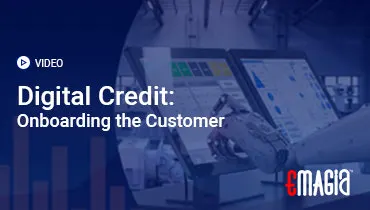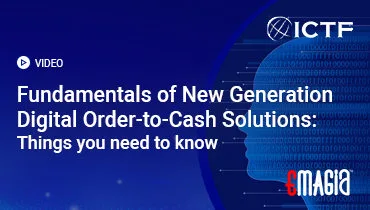Are you still bogged down by paper invoices, endless data entry, and slow approval processes? For many businesses, the journey from sending a bill to getting paid is a chaotic, manual mess. It’s a process prone to errors, delays, and a significant drain on resources. But what if you could eliminate the chaos and create a frictionless, automated invoicing system? This is the promise of e-invoicing solutions.
This guide will take you through everything you need to know about modern electronic invoicing services. We will go beyond a simple definition to show you how a powerful e-invoicing solution can transform your accounts receivable and payable, putting an end to paper-based inefficiency and unlocking your business’s true potential. From small businesses to large enterprises, mastering digital invoicing is no longer an option—it’s a necessity for staying competitive.
What is E-Invoicing? The End of Paper Chaos
At its core, e-invoicing is the automated exchange of an invoice between a supplier’s system and a buyer’s system. But it’s far more than just sending a PDF via email. A true electronic invoice is a structured, machine-readable data file (like XML or UBL). This crucial difference allows it to be processed instantly and automatically, without the need for manual data entry, scanning, or OCR technology. It’s the smart way to handle electronic invoice processing.
E-Invoicing vs. PDF: A Clear Distinction
Many people confuse a simple PDF sent by email with a true e-invoice. A PDF is just a digital image of a paper invoice. It’s unstructured data that still requires human intervention or fallible software to read and understand it. A true e-invoicing solution, however, works with structured data, allowing for seamless, automated workflows from end-to-end. This is the foundation of a modern electronic invoice system.
The Unbeatable Benefits of E-Invoicing Software
The transition to a digital invoicing system provides a tangible ROI that goes directly to your bottom line. It’s a strategic move that saves time, cuts costs, and improves your overall financial health.
Massive Cost Reduction and Efficiency
Implementing an e-invoicing software can save your business a significant amount of money. By eliminating printing, postage, and manual data entry, you drastically reduce administrative costs. The automation provided by a robust electronic invoicing software also minimizes human error, which can be costly and time-consuming to correct.
Improved Cash Flow and Faster Payments
For any business, cash flow is king. E-invoicing solutions drastically cut down the time it takes to get paid. Since invoices are delivered instantly and processed automatically, the entire payment cycle is accelerated. This directly leads to a lower Days Sales Outstanding (DSO) and a healthier working capital. It’s the fastest way to get your money back in your hands.
Enhanced Security and Compliance
True electronic invoicing solutions use secure networks and encryption to protect sensitive data. Unlike paper invoices that can be lost or tampered with, a modern electronic invoice system provides a secure, auditable trail for every transaction. This also helps businesses stay compliant with global regulations, which are increasingly mandating the use of e-invoices.
Choosing the Right E-Invoicing Solution for Your Business
The market for e-invoicing solutions is vast, so it’s important to know what to look for. The right einvoicing solution will fit your business size, industry, and existing technology stack. Whether you’re a small company just looking for an e invoicing online service or a large enterprise in need of a full-fledged platform, the core features remain the same.
Seamless Integration with Your ERP
A top-tier e invoicing software should integrate seamlessly with your existing ERP or accounting system. This integration ensures that data is automatically synced between your systems, eliminating manual data entry and creating a single, reliable source of truth. This is a non-negotiable feature for any company serious about efficient enterprise invoicing.
Automated Workflows and Self-Service Portals
Look for a solution that automates key workflows, such as invoice validation and approval routing. A strong supplier e-invoicing solution will also include a portal that allows your vendors to submit invoices and check their payment status in real time. This functionality reduces calls to your accounts payable team and streamlines communication.
The Future of Invoicing: AI and Smart Solutions
The future of einvoicing is intelligent and predictive. The next generation of electronic invoicing solutions is leveraging AI to offer features that go beyond simple automation. AI-powered platforms can predict late payments, identify and flag suspicious invoices, and provide real-time analytics to help you optimize your cash flow like never before.
From Payments to Profit: How Emagia Empowers Your E-Invoicing
While an e-invoicing platform is a powerful tool for sending and receiving invoices, the journey from invoice to paid cash is where true value is created. This is where Emagia’s AI-powered autonomous finance platform comes in. Emagia works in tandem with your electronic invoicing system to automate the entire order-to-cash process, from intelligent cash application to predictive collections. The platform learns your customers’ payment behavior and proactively manages follow-ups, reducing late payments and freeing up your team to focus on strategic tasks. By seamlessly integrating with your e-invoice solution, Emagia not only ensures a smooth flow of invoices but also accelerates the conversion of those invoices into cash, turning a good system into a great one.
What is a supplier e-invoicing solution?
A supplier e-invoicing solution is a platform that allows your suppliers to send you invoices digitally. It automates the intake and processing of these invoices, reducing manual work and ensuring accurate data is captured in your system.
What is the difference between e-invoicing and a PDF?
A true e-invoice is a structured, machine-readable data file, whereas a PDF is an unstructured document. E-invoicing allows for end-to-end automation, while a PDF still requires manual data entry or scanning to process.
What are e-invoicing solutions?
E-invoicing solutions are software platforms that enable businesses to automate the process of sending, receiving, and processing invoices in a structured electronic format. They replace manual, paper-based workflows with efficient digital ones.
Do I need an ERP system for e-invoicing?
While a powerful e-invoicing solution can integrate with an ERP system for maximum efficiency, it is not always a requirement. Many standalone e-invoicing platforms are available for businesses of all sizes.
What are the benefits of electronic invoice processing?
The key benefits of electronic invoice processing include significant cost savings from reduced paper and postage, increased efficiency due to automation, faster payments, and improved data accuracy, all of which contribute to a healthier cash flow.
What is a B2B invoicing solution?
A B2B invoicing solution is designed for business-to-business transactions. It often includes features for handling large volumes of invoices, complex approval workflows, and integrations with supplier and customer systems.



